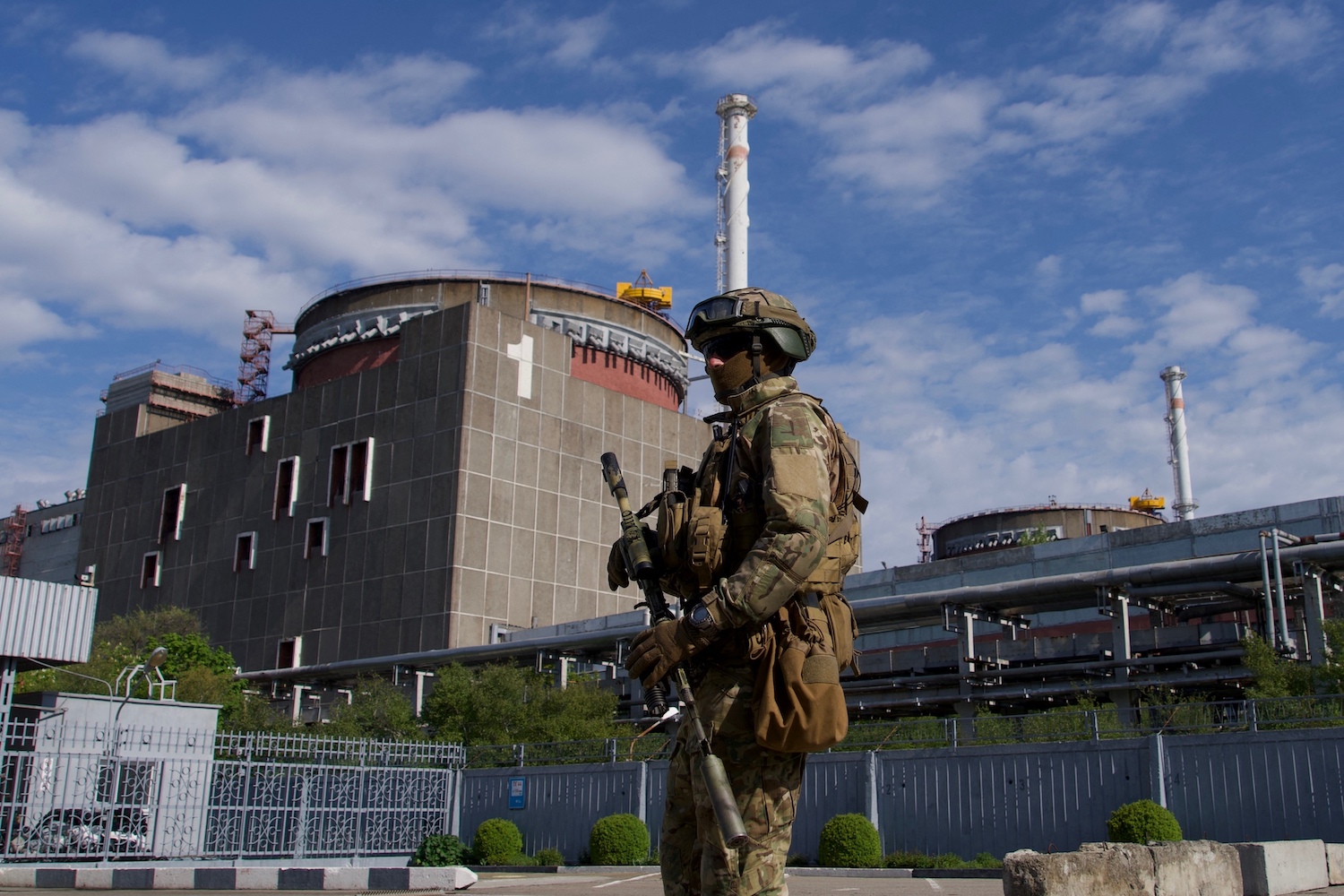Zaporizhzhia nuclear power plant: is Ukraine heading for another Chernobyl?
The UN has called for Russia to allow its safety inspectors to access the damaged facility

A free daily email with the biggest news stories of the day – and the best features from TheWeek.com
You are now subscribed
Your newsletter sign-up was successful
Fighting and shelling at the Zaporizhzhia nuclear power plant in Ukraine have intensified calls from the UN to access the facility to try to avoid a nuclear disaster similar to Chernobyl.
Over the weekend missile attacks damaged the plant, the largest in Europe, prompting the International Atomic Energy Agency (IAEA) to warn of “potentially catastrophic consequences” and a “very real risk of nuclear disaster” if the shelling continued. Both Russia and Ukraine have blamed each other for the barrage.
The conflict around the Zaporizhzhia plant has “sparked international fears of a Chernobyl-style disaster”, said Joe Barnes in The Telegraph, while the UN secretary general António Guterres said any attack on the plant is “suicidal”.
The Week
Escape your echo chamber. Get the facts behind the news, plus analysis from multiple perspectives.

Sign up for The Week's Free Newsletters
From our morning news briefing to a weekly Good News Newsletter, get the best of The Week delivered directly to your inbox.
From our morning news briefing to a weekly Good News Newsletter, get the best of The Week delivered directly to your inbox.
Why is the plant so important?
Located in southern Ukraine near the Dnipro river, the Zaporizhzhia nuclear power plant is the largest nuclear reactor in Europe and produces a fifth of Ukraine’s electricity output. Constructed under the Soviet Union, it contains six pressurised water reactors that are “built in huge reinforced concrete containers” and could “withstand a plane crash”, Professor Claire Corkhill, chair in nuclear material degradation at the University of Sheffield, told Sky News. These reinforcements were required following the disaster in Chernobyl in 1986.
It has been under the control of Russian forces since March and is being used as a “sheltered” position from which to launch shelling with the belief that “Ukraine would not fire back and risk a nuclear accident”, said Peter Beaumont in The Guardian. The site sits on the border of Russian- and Ukrainian-controlled territory in an “extremely important strategic position” for both sides, who have been “contesting control” of it since the war began. The Ukrainian staff still working there are doing so “under duress”, said Lara Keay at Sky News.
What are the dangers?
Missile strikes on 6 August caused damage to radiation sensors, according to the Ukraine state-owned nuclear authority Energoatom, but it said there had been no radioactive leaks. Russia, meanwhile, said Ukrainian bombardments had damaged high-voltage power lines, which cut off power to nearby residents.
Ukraine’s president Volodymyr Zelenskyy has been unequivocal about the danger Russia is posing at the plant and “reacted with fury”, said Ido Vock at The New Statesman. Zelenskyy warned that “no one will stop the wind that will spread the radioactive contamination” if the nuclear plant suffered catastrophic damage.
A free daily email with the biggest news stories of the day – and the best features from TheWeek.com
Moscow is “openly blackmailing the whole world”, Energoatom said, as The Telegraph reported that Russia was “threatening to detonate the explosives” at the site unless it was handed “permanent control”.
There is “deepening anxiety” about the dangers of what could happen next, said The Guardian. Safety officials are “concerned over the lack of spare parts, access for routine maintenance of the reactors and lack of contact with staff”.
The major cause of concern is a “release of spent fuel material” rather than a breach of the reinforced reactors, as the containers of highly radioactive fuel are “probably a greater risk”. The head of Energoatom, Petro Kotin, said that “it is impossible to assess the scale” of the disaster in Ukraine and across Europe if that happened, Reuters reported.
Still, a breach of one of the reactors remains a concern, as “the reinforcements are not designed against military-grade weapons”, Tony Roulstone, lecturer in nuclear energy at Cambridge University, told Sky News. He added that “nuclear power and warfare don’t mix”.
Will Russia grant access?
UN officials from the IAEA have requested Russia to allow inspectors to visit the plant to assess damage and the safety of the facility and maintain “stabilisation of the plant”.
The US has called for a complete cessation of military operations around the facility and Ukraine has demanded the plant be treated as a demilitarised zone. While that request is “prudent”, said Beaumont in The Guardian, it would also “serve a military objective” as it would stop Russian forces from being able to freely attack Ukraine from its protected position. But Russia has maintained its stance that Ukraine is to blame for the shelling and continues to occupy the Zaporizhzhia facility.
The stalemate adds yet another level of intricacy to an already “complex conflict”, said Vock in The New Statesman. While a catastrophic incident has so far been avoided at Zaporizhzhia, the “potential for global consequences for decades” remains.
Richard Windsor is a freelance writer for The Week Digital. He began his journalism career writing about politics and sport while studying at the University of Southampton. He then worked across various football publications before specialising in cycling for almost nine years, covering major races including the Tour de France and interviewing some of the sport’s top riders. He led Cycling Weekly’s digital platforms as editor for seven of those years, helping to transform the publication into the UK’s largest cycling website. He now works as a freelance writer, editor and consultant.